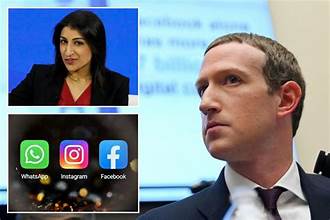In a significant development in the world of technology and digital privacy, a former WhatsApp executive has filed a lawsuit against Meta Platforms Inc., the parent company of Facebook, Instagram, and WhatsApp, alleging serious security failures within the company. This case has not only raised eyebrows within the tech industry but has also reignited discussions around privacy, data protection, and the accountability of global technology giants. The allegations, if proven true, could potentially reshape how Meta operates and how users perceive the safety of their private information on its platforms.
The Background of the Case
The former executive, who once played an instrumental role in WhatsApp’s growth and development, has accused Meta of ignoring and mishandling critical security issues. According to the lawsuit, these lapses could have left millions of users vulnerable to breaches, exposing private conversations, sensitive information, and personal data to malicious actors.
WhatsApp, since its inception, has prided itself on offering end-to-end encryption, ensuring that messages are visible only to the sender and recipient. However, the lawsuit claims that Meta failed to uphold these promises fully, allegedly prioritizing profit-driven decisions over user security. This accusation, if substantiated, directly challenges Meta’s long-standing claims about user privacy protections.
Meta’s Security Controversies: A Troubled History
This lawsuit is not an isolated case. Over the years, Meta has faced mounting criticism regarding its handling of user data and security. From the infamous Cambridge Analytica scandal to multiple global investigations into Facebook’s data collection practices, Meta has had to defend itself repeatedly against claims of negligence.
The Cambridge Analytica scandal, in particular, was a watershed moment that highlighted how user data could be exploited for political gains. Since then, Meta has promised reforms and invested heavily in public campaigns promoting its commitment to user privacy. Yet, allegations like those made by the former WhatsApp executive suggest that systemic issues may persist behind the scenes.
What the Lawsuit Alleges
While the complete details of the lawsuit are still unfolding, early reports highlight some of the critical points raised by the plaintiff:
- Neglect of Security Protocols – The lawsuit claims that Meta disregarded known vulnerabilities within WhatsApp’s infrastructure, leaving user data at risk.
- Profit Over Privacy – According to the former executive, Meta allegedly prioritized business expansion, advertising models, and monetization strategies rather than investing adequately in safeguarding WhatsApp users.
- Failure to Act on Warnings – The plaintiff suggests that repeated internal warnings regarding security loopholes were downplayed or ignored by higher management.
- Misrepresentation to Users – Perhaps the most serious allegation is that Meta misled users into believing their private data was entirely secure while being aware of potential risks.
If these claims are validated in court, Meta could face significant financial and reputational damage, further eroding public trust in its platforms.

Implications for WhatsApp Users
For the billions of people worldwide who rely on WhatsApp for daily communication, the lawsuit brings unsettling questions to the forefront. Can WhatsApp still be trusted as a secure messaging platform? Has Meta compromised the very foundation of user privacy that made WhatsApp popular in the first place?
Many users migrated to WhatsApp specifically because of its promise of end-to-end encryption, particularly after concerns about Facebook’s handling of personal data became widespread. If this lawsuit reveals that those assurances were overstated or compromised, users may be forced to reevaluate their digital choices, potentially turning to alternatives like Signal or Telegram.
Meta’s Response So Far
At the time of writing, Meta has strongly denied the allegations. The company insists that it takes user privacy and data protection seriously and continues to invest in security enhancements. A Meta spokesperson has emphasized that WhatsApp remains one of the most secure platforms globally, thanks to its encryption protocols and regular updates to combat evolving threats.
However, legal experts argue that public statements alone will not be enough to ease concerns. The court proceedings will be critical in determining whether Meta’s internal practices align with its public promises.
The Larger Debate: Big Tech and Accountability
This lawsuit is part of a broader narrative surrounding Big Tech’s accountability. Over the past decade, companies like Meta, Google, Amazon, and Apple have grown into some of the most powerful corporations in the world, controlling vast amounts of user data. With this power comes responsibility, but critics argue that profit motives often overshadow ethical considerations.
Governments and regulators around the globe have already begun tightening rules around data privacy and security. The European Union’s General Data Protection Regulation (GDPR) and similar laws in other regions demonstrate a growing intolerance for negligence in handling user data. If Meta is found guilty, this case could further strengthen calls for stricter regulations and oversight of tech giants.
Potential Consequences for Meta
The outcomes of this lawsuit could have far-reaching implications:
- Financial Penalties – If found liable, Meta may face hefty fines or compensation claims.
- Regulatory Action – Governments could impose stricter oversight on Meta’s operations, including WhatsApp.
- User Exodus – Public trust is fragile. Any perception of insecurity could push users toward alternative platforms.
- Reputational Damage – Beyond the legal and financial consequences, Meta risks further tarnishing its already controversial image.

The Future of Digital Privacy
This lawsuit underscores a fundamental question in the digital age: how safe is our private data in the hands of corporations? For users, this case is a reminder to remain cautious about the platforms they use, the permissions they grant, and the personal information they share online.
Tech companies like Meta must recognize that privacy is no longer just a feature—it is a right. Users are becoming increasingly aware of how their data is collected and used, and they expect companies to uphold the highest security standards. Failure to do so could lead to not only lawsuits but also the loss of user loyalty and trust.
Conclusion
The lawsuit filed by the former WhatsApp executive against Meta represents more than just a legal battle—it symbolizes a clash between corporate interests and user rights. As the case unfolds, it will likely draw widespread attention, sparking debates on privacy, ethics, and the future of secure communication.
For Meta, the stakes are high. Its credibility and trustworthiness hang in the balance, and the outcome could influence how billions of users interact with its platforms. For the public, this is a moment to reflect on the importance of digital security and demand greater accountability from the companies that hold our data.



